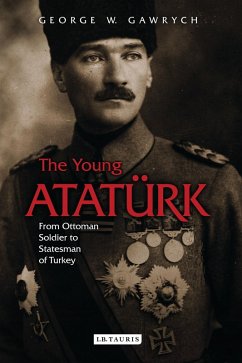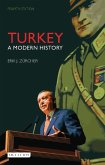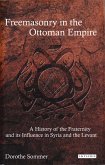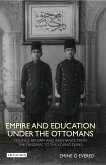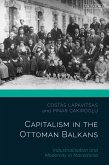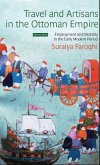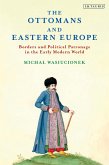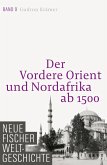Mustafa Kemal - latterly and better known as Atatürk - is without doubt the most famous figure in modern Turkish history. But what was his path to power? And how did his early career as a soldier in the Ottoman army affect his later decisions as President?
The Young Atatürk tracks the lesser covered period of Kemal's life - from the War of Independence to the founding of the Republic. George W. Gawrych shows that it is only by understanding Kemal's military career that one can fully comprehend how he evolved as one of the twentieth century's most extraordinary statesmen. Gawrych also contributes to the understanding of Kemal by presenting a systematic and critical analysis of his military writings, orders, actions, and letters as well as his political decisions, speeches, proclamations, and private correspondences.
Soldiering helped shape Kemal's critical reasoning, personal values and emotional intelligence. His experiences as an officer and commander forced him to adjust theories to practices in order to solve problems and make decisions. But Kemal was a natural political leader and his broad intellectual interests and personal studies helped prepare him for political leadership. Gawrych demonstrates that in the last year of the War of Independence Kemal excelled as both Commander-in-Chief of the Armed Forces and President of the Grand National Assembly of Turkey.
Gawrych incorporates previously-unstudied Ottoman archival documents and is the first Western scholar to conduct extensive research on Kemal in the military archives of the Turkish General Staff. This book is essential reading for those seeking to understand the establishment of the Republic of Turkey and the part that Kemal played in that process.
The Young Atatürk tracks the lesser covered period of Kemal's life - from the War of Independence to the founding of the Republic. George W. Gawrych shows that it is only by understanding Kemal's military career that one can fully comprehend how he evolved as one of the twentieth century's most extraordinary statesmen. Gawrych also contributes to the understanding of Kemal by presenting a systematic and critical analysis of his military writings, orders, actions, and letters as well as his political decisions, speeches, proclamations, and private correspondences.
Soldiering helped shape Kemal's critical reasoning, personal values and emotional intelligence. His experiences as an officer and commander forced him to adjust theories to practices in order to solve problems and make decisions. But Kemal was a natural political leader and his broad intellectual interests and personal studies helped prepare him for political leadership. Gawrych demonstrates that in the last year of the War of Independence Kemal excelled as both Commander-in-Chief of the Armed Forces and President of the Grand National Assembly of Turkey.
Gawrych incorporates previously-unstudied Ottoman archival documents and is the first Western scholar to conduct extensive research on Kemal in the military archives of the Turkish General Staff. This book is essential reading for those seeking to understand the establishment of the Republic of Turkey and the part that Kemal played in that process.

